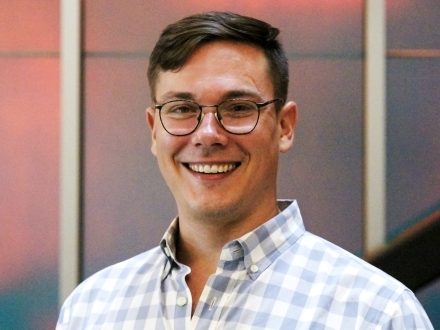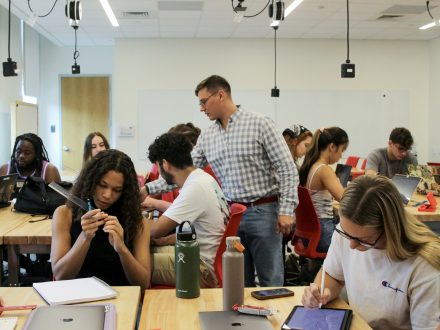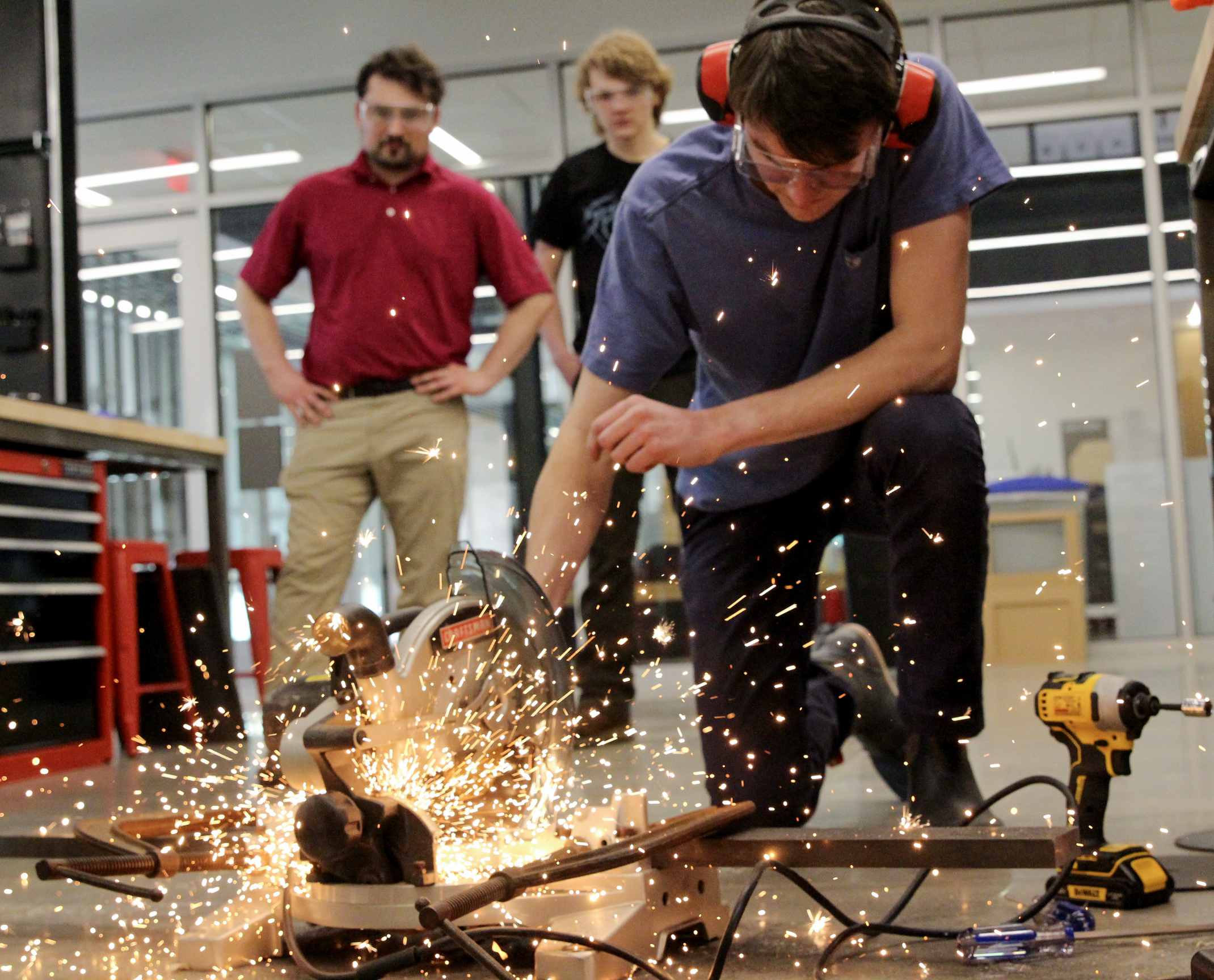The mechanical engineering concentration complements existing coursework and is the most popular engineering degree worldwide. Assistant Professor Blake Hament was hired this summer to add to existing curriculum and faculty expertise.
New this academic year, Elon’s Department of Engineering will offer a mechanical engineering concentration with the Bachelor of Science in Engineering degree program — a sign of the program’s continued growth and rise to prominence.
Mechanical engineering is the most popular among engineering disciplines globally and is in high demand by employers. The new concentration complements Elon’s general engineering degree with an emphasis on technical proficiency through courses in mechanics, dynamics, thermodynamics, materials science and structural analysis.
The Engineering program also offers concentrations in biomedical engineering, computer engineering and environmental engineering.
“Mechanical engineering is the most popular and versatile engineering discipline and broadly appeals to prospective students who are interested in engineering,” said Scott Wolter, associate professor and chair of the Department of Engineering. “Many of the courses required of a mechanical engineering concentration have been taught at Elon for many years, and several of our faculty and staff hold mechanical engineering degrees.”
Elon’s B.S. in Engineering program offers a general engineering degree applicable to a wide variety of careers and fields. The program’s rigorous emphasis on fundamental skills fused with liberal arts perspectives produces graduates with technical prowess, broad critical thinking and collaborative dexterity needed to solve complex problems in the 21st century.

Current and prospective students are expected to enroll in the mechanical engineering concentration, having expressed interest in surveys and on tours with department faculty.
Complementing existing courses in statics and dynamics, mechanics of solids, fluid mechanics and thermodynamics, faculty have added new courses in manufacturing engineering, controls and dynamic systems, and introduction to heat and mass transfer.
Assistant Professor Blake Hament joined the department faculty this summer to create and teach some of these new courses. Hament earned his doctorate in mechanical engineering from the University of Nevada – Las Vegas, where he specialized in robotics research in the Drones and Autonomous Systems Lab. Hament worked in research and development for companies including Boston Dynamics, Tesla and Lockheed Martin Space while completing his doctorate. He obtained a Master of Science in curriculum and instruction – secondary science, also at the University of Nevada – Las Vegas, and his Bachelor of Science in physics at Duke University.
“We are excited to have Dr. Hament join us,” Wolter said. “His prior and planned work in mobile robotics, such as drones, humanoids and quadrupeds, has already generated interest among many of our students and is certain to draw visitors to his labs in Innovation Hall.”

Hament is particularly interested in ways drones and quadruped robots can be utilized to improve construction safety and in engineering-controlled environments for agricultural use that require less water, less pesticides and less transportation than traditional farming practices. One of his favorite projects was designing a drone that could carry and spray a high-pressure hose.
“It posed an interesting physics and dynamics problem,” Hament said. “Pressurized water hoses kick back almost like a firearm, and that’s challenging to equip to a free-flying drone. It was a fun problem to solve.”
Hament is developing the EGR 4160 Controls and Dynamic Systems course for spring 2024. That course will provide hands-on learning around designing controls “for everything from HVAC, to industrial controls for manufacturing, to robots and aerospace vehicles,” he said.
“I’m very excited to be joining the Elon community,” Hament said. “Elon has established an impressive tradition of teaching, scholarship and mentorship, and I look forward to collaborating with all the amazing students, faculty and staff across campus.”



